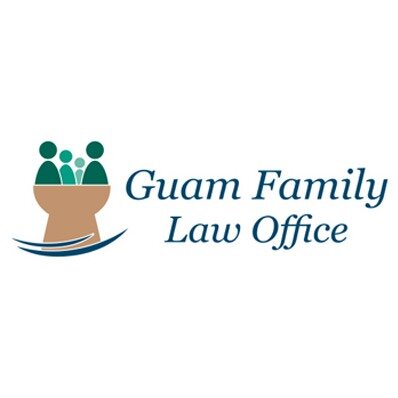Best Military Divorce Lawyers in Hagåtña
Share your needs with us, get contacted by law firms.
Free. Takes 2 min.
Free Guide to Hiring a Family Lawyer
List of the best lawyers in Hagåtña, Guam
About Military Divorce Law in Hagåtña, Guam
Military divorce in Hagåtña, Guam, involves unique considerations that differentiate it from civilian divorce proceedings. Guam, being a strategic military hub, is home to many active-duty service members and their families. This necessitates an understanding of both federal military regulations and local Guam laws when handling divorce cases. Key elements like residency requirements, division of military pensions, and deployment considerations play a crucial role in military divorces.
Why You May Need a Lawyer
Navigating through a military divorce can be complex, and in many scenarios, legal assistance can be invaluable. You may need a lawyer if there are disputes over the division of a military pension, handling custody and visitation with the unique demands of military life, or understanding your rights under laws like the Uniformed Services Former Spouses' Protection Act (USFSPA). Additionally, if you are facing complications with jurisdictional issues or require a proper assessment of other benefits post-divorce, legal guidance is crucial.
Local Laws Overview
In Hagåtña, Guam, military divorces are subject to specific laws that cater to the needs of service members. Guam allows for a relatively straightforward residency requirement, often favorable to military members who may not meet strict residency requirements elsewhere. The division of property, child support, and spousal support are guided by both federal and local laws. The USFSPA allows for the division of military pensions as marital property, which is a unique aspect of military divorces.
Frequently Asked Questions
What is the residency requirement for filing a military divorce in Guam?
Guam offers a more lenient residency requirement for divorce, often benefiting military personnel who are stationed temporarily. Either spouse can file for divorce in Guam without long-term residency.
How are military benefits divided in a divorce?
Military benefits are subject to division under the USFSPA, which allows state courts to treat military retirement pay as marital property. The specifics of the division will depend on the circumstances and duration of the marriage.
What happens to housing during a military divorce?
Military housing is no longer available to the non-military spouse after divorce. The couple must plan for alternative housing arrangements early in the divorce process.
How does deployment affect custody arrangements?
Deployment can complicate custody arrangements. Courts in Guam typically consider the best interests of the child, and custody agreements may need special terms to manage periods of deployment.
Can a spouse receive alimony in a military divorce?
Yes, a spouse may receive alimony in a military divorce, determined by factors such as the length of the marriage, financial need, and the ability to pay. Guam courts will consider these alongside federal guidelines.
How does military divorce impact Health Benefits?
Health benefits, such as TRICARE, may continue for the spouse under certain conditions, such as the "20/20/20 rule." This rule requires 20 years of marriage overlapping 20 years of military service.
Is mediation a viable option for military divorce?
Mediation can be an effective way to resolve disputes amicably, focusing on negotiation and problem-solving. It is often encouraged to avoid lengthy court proceedings.
How are child support and visitation determined?
Child support is guided by Guam's child support guidelines, taking into account military income. Visitation schedules consider the unique lifestyle and possible deployment of the military parent.
What legal protections are available for deployed service members facing divorce?
The Servicemembers Civil Relief Act (SCRA) provides certain protections, allowing for the delay of divorce proceedings if a service member is deployed and unable to participate.
How can I ensure my legal rights are protected during a military divorce?
Hiring an attorney experienced in military divorce is crucial to navigate complex military laws and ensure your rights and entitlements are fully protected throughout the process.
Additional Resources
If you are seeking help with a military divorce, several resources may be beneficial. The Guam Bar Association can provide referrals to attorneys specializing in military law. The Navy-Marine Corps Relief Society and Army Community Service also offer support services for families. Additionally, the military's legal assistance office can offer free legal advice to service members and their families.
Next Steps
If you require legal assistance with a military divorce in Hagåtña, Guam, the first step is to consult with an experienced military divorce attorney. Gather all relevant documents, such as marriage records, financial statements, and military benefit information. Preparation will help ensure that your consultation is as productive as possible. Consider contacting the legal assistance office on your base for preliminary advice and support. After securing legal representation, work together to address any unique circumstances of your case, such as deployments or residency issues.
Lawzana helps you find the best lawyers and law firms in Hagåtña through a curated and pre-screened list of qualified legal professionals. Our platform offers rankings and detailed profiles of attorneys and law firms, allowing you to compare based on practice areas, including Military Divorce, experience, and client feedback.
Each profile includes a description of the firm's areas of practice, client reviews, team members and partners, year of establishment, spoken languages, office locations, contact information, social media presence, and any published articles or resources. Most firms on our platform speak English and are experienced in both local and international legal matters.
Get a quote from top-rated law firms in Hagåtña, Guam — quickly, securely, and without unnecessary hassle.
Disclaimer:
The information provided on this page is for general informational purposes only and does not constitute legal advice. While we strive to ensure the accuracy and relevance of the content, legal information may change over time, and interpretations of the law can vary. You should always consult with a qualified legal professional for advice specific to your situation.
We disclaim all liability for actions taken or not taken based on the content of this page. If you believe any information is incorrect or outdated, please contact us, and we will review and update it where appropriate.










